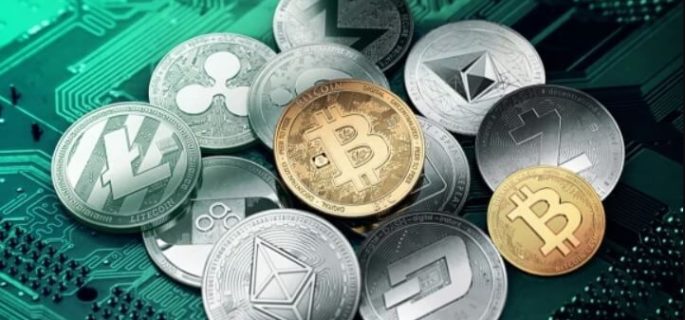The real point of cryptocurrencies is not their price

The Wall Street Journal recently posted an email conversation between columnist Andy Kessler and billionaire Mark Cuban in which Cuban explains the real point of cryptocurrencies. Hint: It has nothing to do with the price of bitcoin or ethereum.
“Mark Cuban Knows Crypto
The Dallas Mavericks owner explains the allure and efficiency of digital ‘ownership.’
After my recent column on buying devices like iPhones but not really owning them, Mark Cuban, as he sometimes does, responded via email: “Nice argument for NFTs,” referring to nonfungible tokens. I’ve known Mr. Cuban since the last tech bubble, when he famously sold Broadcast.com in 1999 to Yahoo! for $5.7 billion, more than Apollo Global Management paid Verizon for the remnants of Yahoo, AOL and even Netscape earlier this month. He smartly hedged his position and bought the Dallas Mavericks in 2000.
I’m not sure Mr. Cuban ever talks on the phone, but he’s sure quick with email responses.
“It depends what you ‘own,’ ” I shot back. By now, you’re probably familiar with the eye-opening $69 million dropped on NFT “artwork” by Beeple. Or the $2.9 million for the NFT of Twitter founder Jack Dorsey’s first tweet, which you can easily see online: “just setting up my twttr.” I guess you own something, I’m just not sure what.
“The NFT is the authentication of what you own that is made public for anyone to see,” Mr. Cuban explains. Today, “all provenance is siloed and not public. NFTs can change that.”
Little did Mr. Cuban know that I had been poking around NBA Topshot for a highlight NFT of Mavericks star Luka Dončić. One cool NFT goes for $120. But what’s this? A 5% transaction fee? Even more surprising, the fine print says there are potentially 9,999 other “owners” of the same highlight with asking prices into the thousands for the same NFT.
Mr. Cuban adds, “All the prices paid for entertainment collectibles is fun and works well and it’s more efficient than physical collectibles as long as you are good with valuing digital items. We value our pics and music on our phones. Collectors value what they value and if there are more buyers than sellers pricing will go up.” Then again, maybe it’s a hustle, as Elon Musk said of dogecoin on “Saturday Night Live.”
Mr. Cuban then notes, “But these are just proof of concepts. Not the end game.” I quickly emailed back, “OK, I get that. Like what?”
The floodgates opened. “NFTs are just one application of smart contracts. Think about textbooks being NFTs. You buy it. Use it. Easily resell it. Publishers get royalty on each sale. Think how stocks work right now. Most people think they own the stock. They own the right to the stock. It’s held in street name. It gets lent out to shorts and they don’t collect the vig on the borrow. And then of course there is front running and payment for order flow and the fact that a share of stock doesn’t truly convey the holder any real ownership rights. If every share or block of shares was an NFT then it all would be transparent.”
He’s right. I noted, “I’ve seen some are using blockchain for mortgages. I assume they or others will do titles too. So what is that end game?” “Smart contracts on blockchains, particularly Ethereum, is an enormous game changer that every company will use,” he replied.
“Weather insurance (Arbol is a great example). With a smart contract I’m soon going to be able to have the Mavs buy weather insurance where using a smart contract I pick the temperature and precipitation thresholds and the smart contract checks the National Weather Service for my ZIP Code or another chosen data source and on that day or period if the threshold is met, I get Ethereum deposited into my account automatically.
“No different than the internet of the 1995 where people weren’t quite sure but eventually they saw the network effect and value. Smart contracts are going to eat a lot of the software-as-a-service world.”
I kept pushing: “I’ve seen complaints about the costs of transactions. Even with Ethereum. Isn’t it still too high, for textbooks certainly, but even for other higher valued items?” Mr. Cuban answered, “It is too expensive. But that’s specific to original Ethereum. There are changes coming with Ethereum 2.0 and immediate options with Layer 2 enhancements from a bunch of companies.”
I noted that Coinbase, now a public company, “is very profitable because their fees are so high but it’s speculators who pay. Won’t lower fees drive usage long term?” “Coinbase is the Netscape of now,” answered Mr. Cuban. “There will be cheaper options.”
I just had to ask. “Does it matter if Ethereum is $3,900 or $39,000 or $390 for that matter for the future you lay out to unfold? There seems a disconnect between how crypto is used for smart contracts and its value.” Mr. Cuban quickly responded, “Doesn’t matter at all.” And that is the bull case for blockchain. Crypto prices? Not so much.
There are at least two takeaways from this. First, notice that — in a discussion of cryptos — bitcoin is never mentioned. Is the “digital gold” thesis still valid?
Second, is ethereum 2.0 — the one with radically lower transaction costs — the real crypto investing story? Or is it a kind of stock exchange, necessary but secondary to the ventures that emerge from it? And if so, what is it actually worth? Stay tuned.
By John Rubino, http://dollarcollapse.com/
Find more: Contributing Authors






























